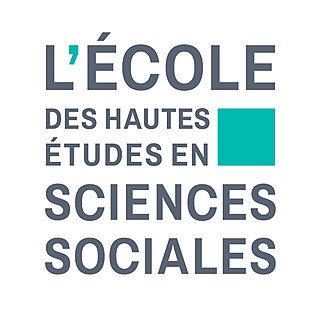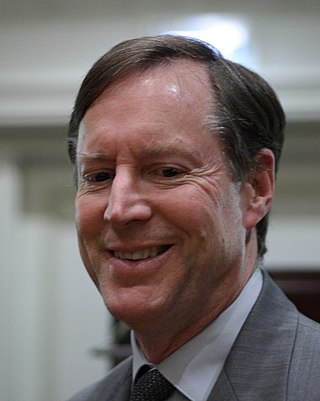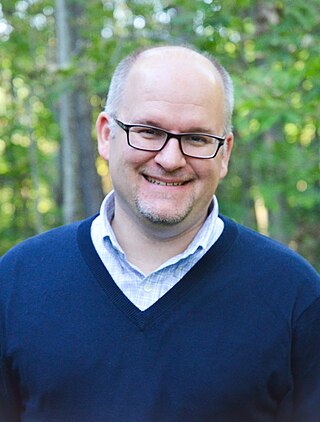Related Research Articles

Pierre Bourdieu was a French sociologist and public intellectual. Bourdieu's contributions to the sociology of education, the theory of sociology, and sociology of aesthetics have achieved wide influence in several related academic fields. During his academic career he was primarily associated with the School for Advanced Studies in the Social Sciences in Paris and the Collège de France.

Karl Mannheim was an influential Hungarian sociologist during the first half of the 20th century. He is a key figure in classical sociology, as well as one of the founders of the sociology of knowledge. Mannheim is best known for his book Ideology and Utopia (1929/1936), in which he distinguishes between partial and total ideologies, the latter representing comprehensive worldviews distinctive to particular social groups, and also between ideologies that provide support for existing social arrangements, and utopias, which look to the future and propose a transformation of society.

The School for Advanced Studies in the Social Sciences is a graduate grande école and grand établissement in Paris focused on academic research in the social sciences. It is regarded as one of the most prestigious institutions of graduate education in France. The school awards Master and PhD degrees alone and conjointly with the grandes écoles École normale supérieure, École polytechnique, and École pratique des hautes études.

The sociology of art is a subfield of sociology that explores the societal dimensions of art and aesthetics.

Theodore M. Porter is a professor who specializes in the history of science in the Department of History at UCLA. He has authored several books, including The Rise of Statistical Thinking, 1820-1900; and Trust in Numbers: The Pursuit of Objectivity in Science and Public Life, the latter a vast reference for sociology of quantification. His most recent book, published by Princeton University Press in 2018, is Genetics in the Madhouse: The Unknown History of Human Heredity. He graduated from Stanford University with an A.B. in history in 1976 and earned a Ph.D. from Princeton University in 1981. In 2008, he was elected to the American Academy of Arts and Sciences. In 2023, he received the George Sarton Medal for lifetime achievement from the History of Science Society.
Alain Desrosières was a statistician, sociologist and historian of science in France, well known for his work in the history of statistics He is the author of The Politics of Large Numbers: A History of Statistical Reasoning , published in 1993, translated into several languages, including English in 1998, and subsequently reviewed in the LRB in 2000. This described the origins of statistics as technical machinery for administration in the 19th and 20th centuries, including the attempts to measure human and economic development. The text is an account of the statistics and their use in abstracting features of society to better measure and understand them, with particular aims.

Laurent Thévenot is a French sociologist Professor at the Ecole des Hautes Etudes en Sciences Sociales (Paris).
Alain Supiot FBA is a French legal scholar.
The following events related to sociology occurred in the 1990s.
Beverley Skeggs is a British sociologist, noted as one of the foremost feminist sociologists in the world. Currently, she works as a "Distinguished Professor" in the Sociology Department at Lancaster University, developing a Center for Social Inequalities in the North West of England. She continues to run the "Economics of Care" theme at the International Inequalities centre at the London School of Economics (LSE) and is a visiting professor at Goldsmiths University. She has been the head of two of the UK's leading Sociology Departments, at the University of Manchester and Goldsmiths, as well as co-director of Lancaster's Women's Studies. In addition, she played a part in transforming Britain's oldest sociology journal, The Sociological Review, into an independent foundation devoted to opening up critical social science and supporting social scientists.

This bibliography of sociology is a list of works, organized by subdiscipline, on the subject of sociology. Some of the works are selected from general anthologies of sociology, while other works are selected because they are notable enough to be mentioned in a general history of sociology or one of its subdisciplines.
In mathematics and empirical science, quantification is the act of counting and measuring that maps human sense observations and experiences into quantities. Quantification in this sense is fundamental to the scientific method.

Stephen Lawrence Morgan is a Bloomberg Distinguished Professor of Sociology and Education at the Johns Hopkins University School of Arts and Sciences and Johns Hopkins School of Education. A quantitative methodologist, he is known for his contributions to quantitative methods in sociology as applied to research on schools, particularly in models for educational attainment, improving the study of causal relationships, and his empirical research focusing on social inequality and education in the United States.
Ethics of quantification is the study of the ethical issues associated to different forms of visible or invisible forms of quantification. These could include algorithms, metrics/indicators, statistical and mathematical modelling, as noted in a review of various aspects of sociology of quantification.
The French movement of statactivism advocates for the mobilization of statistics in support to social movements and agendas.

Andrea Saltelli is an Italian scholar studying quantification with statistical and sociological tools, extending the theory of sensitivity analysis to sensitivity auditing.
Sociodicy is the explanation and exploration of the fundamental goodness of human society. It seeks to provide an account for humans' general success in living together despite their propensity to selfishness, violence, and evil and despite the variation and difference seen across human populations.
The Politics of Large Numbers is a history book by French statistician, sociologist and historian of science, Alain Desrosières, which was originally published in French in 1993. The English translation, by Camille Naish, was published in 1998 by Harvard University Press.
The New Politics of Numbers: Utopia, evidence and democracy is a multi-author book edited by sociologists Andrea Mennicken and Robert Salais and published in 2022 by Palgrave Macmillan.
Trust in numbers is a book of Theodore Porter published in 1995 by Princeton University Press.
References
- 1 2 W. N. Espeland and M. L. Stevens, “A sociology of quantification,” Eur. J. Sociol., vol. 49, no. 3, pp. 401–436, 2008.
- 1 2 E. Popp Berman and D. Hirschman, “The Sociology of Quantification: Where Are We Now?,” Contemp. Sociol., vol. 47, no. 3, pp. 257–266, 2018.
- 1 2 C. O’Neil, Weapons of math destruction : how big data increases inequality and threatens democracy. Random House Publishing Group, 2016.
- ↑ W. N. Espeland and M. Sauder, Engines of anxiety : academic rankings, reputation, and accountability. Russell Sage Foundation, 2016.
- 1 2 3 J. Z. Muller, The tyranny of metrics. Princeton University Press, 2018.
- ↑ Theodore Porter, Trust in Numbers: The Pursuit of Objectivity in Science and Public Life. Princeton University Press, 1996.
- 1 2 I. Bruno, E. Didier, and J. Prévieux, Statactivisme. Comment lutter avec des nombres. Paris: Zones, La Découverte, 2014.
- ↑ Robson, K., Sanders, C. (Eds.), 2009. Quantifying Theory: Pierre Bourdieu. Springer.
- ↑ Desrosières, A., 1998. The Politics of Large Numbers: a history of statistical reasoning . Harvard University Press.
- ↑ Hacking, I., 1990. The taming of chance. Cambridge University Press
- ↑ Daston, L., 1995. Classical Probability in the Enlightenment. Princeton University Press.
- ↑ Robert Salais, 2012. Quantification and the Economics of Convention. Hist. Soc. Res. 37, 55–63.
- ↑ Theodore Porter, “Funny Numbers,” Cult. Unbound, vol. 4, pp. 585–598, 2012.
- ↑ Sally Engle Merry, 2016, The Seductions of Quantification: Measuring Human Rights, Gender Violence, and Sex Trafficking, Chicago University press.
- ↑ Alain Supiot, Governance by Numbers: The Making of a Legal Model of Allegiance. Oxford University Press, 2007.
- ↑ A. Bastani, Fully Automated Luxury Capitalism: A Manifesto. New York: Verso, 2019.
- ↑ J. Mostafa, “The Revolution Will Not Be Automated,” Sydney Review of Books, Jul-2019.
- ↑ E. Morozov, “Digital Socialism? The Calculation Debate in the Age of Big Data,” new left Rev., no. 116/117, pp. 33–68, 2019.
- ↑ Mennicken, Andrea, and Wendy Nelson Espeland. 2019. “What’s New with Numbers? Sociological Approaches to the Study of Quantification.” Annual Review of Sociology 45 (1): 223–45. https://doi.org/10.1146/annurev-soc-073117-041343.
- ↑ Mennicken, Andrea, and Robert Salais. 2022. The New Politics of Numbers: Utopia, Evidence and Democracy. Palgrave Macmillan.
- ↑ Supiot, Alain. 2015. La Gouvernance par les nombres. Paris: Fayard. https://www.fayard.fr/sciences-humaines/la-gouvernance-par-les-nombres-9782213681092.
- ↑ Salais, Robert. 2022. “‘La Donnée n’est Pas Un Donné’: Statistics, Quantification and Democratic Choice.” In The New Politics of Numbers: Utopia, Evidence and Democracy, Andrea Mennicken and Rober Salais, 379–415. : : Utopia, Evidence and Democracy. Palgrave Macmillan.
- ↑ McQuillan, Dan. 2022. Resisting AI: An Anti-fascist Approach to Artificial Intelligence. Bristol University Press. https://www.amazon.es/Resisting-AI-Anti-fascist-Artificial-Intelligence/dp/1529213495.
- ↑ Morgan, Mary S., and Margaret Morrison, eds. 1999. Models as Mediators: Perspectives on Natural and Social Science. Cambridge ; New York: Cambridge University Press.
- ↑ T. Rhodes and K. Lancaster, “Mathematical models as public troubles in COVID-19 infection control: following the numbers,” Heal. Sociol. Rev., pp. 1–18, May 2020.
- ↑ A. Saltelli, G. Bammer, I. Bruno, E. Charters, M. Di Fiore, E. Didier, W. Nelson Espeland, J. Kay, S. Lo Piano, D. Mayo, R.J. Pielke, T. Portaluri, T.M. Porter, A. Puy, I. Rafols, J.R. Ravetz, E. Reinert, D. Sarewitz, P.B. Stark, A. Stirling, P. van der Sluijs, Jeroen P. Vineis, Five ways to ensure that models serve society: a manifesto, Nature 582 (2020) 482–484.
- ↑ Morgan, M.S., Morrison, M. (Eds.), 1999. Models as Mediators: Perspectives on Natural and Social Science. Cambridge University Press, Cambridge ; New York.
- ↑ Morgan, Mary S. 2012. The World in the Model: How Economists Work and Think. New edition. Cambridge ; New York: Cambridge University Press.